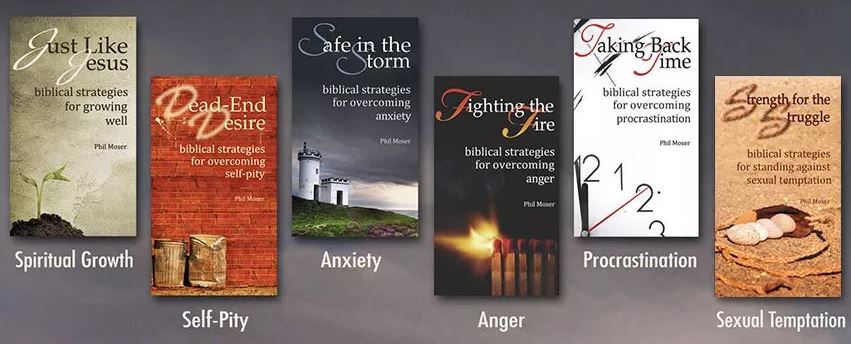7 Timely Truths about Time-Part 1
Prior to this crisis and its corresponding quarantine, I used to think that if I wasn’t so busy, I would do a personal evaluation of my life and my use of time. Perhaps, in the not-too-distant-pass, you had thought too. Then came the quarantine. I have two really busy friends (an Exec in the tech industry and a medical Doc), who, for most of their careers have burned the candle at both ends. Yet, when I asked them if they had seen personal benefits to the quarantine, they gave the same answer: increased time with the family.
Maybe, just maybe, this crisis has given us the chance to think differently about our use of time. One of the wisest men in the Bible recorded his thoughts on time in a 7-stanza poem in the book of Ecclesiastes. The Byrds took his text and drove it up the rock charts to a number one hit in 1965 with their song, “Turn, Turn, Turn.” Solomon’s words start with, “For everything there is a season, and a time for every matter under heaven (3:1) Here are seven timely truths about time.
Timely Truth #1: THINK realistically & LIVE patiently
A time to be born, and a time to die; a time to plant, and a time to pluck up what is planted.
Most people don’t think realistically about the end of their life until it’s too late. It’s easy to be moving so quickly on the tread mill of life that we forget the day is coming when it will stop. There is a small window of time between the time to be born and the time to die. Make sure that small window of time is filled up with the stuff that matters. We need to THINK REALISTICALLY about life.
If the farmer misses either the time to plant or the time to harvest somebody is going to go hungry. During the time between planting and harvesting, great patience is required. Everything takes time to grow. Farmers posses a different kind of work ethic. They work hard, but they also understand the patience that’s needed as they wait on God to give the increase from their effort. We need to LIVE PATIENTLY.
Timely Truth #2: TAKE ACTION accordingly & MAKE CHANGES courageously
A time to kill, and a time to heal; A time to a time to break down, and a time to build up.
While it seems harsh, killing is an inevitable part of a fallen world. I kill weeds in my backyard and the wasp hovering at my backdoor. Somebody killed the meal that will be on your dinner table tonight. Sometimes, human life is taken in war or in the execution of justice for the protection of others. Sin brought death into our world. God, himself, would ordain the death of his own Son—for our sake. While most of our decisions aren’t of a life and death magnitude, they can still be difficult and require the same resolve to TAKE ACTION ACCORDINGLY.
Change is often necessary, but not necessarily easy. Every change I’ve ever made has involved a time to break down, and a time to build up. Whether it’s a personal change of lifestyle or a change to an established tradition at the church where I pastor, the first step od change is always a time to break down. Yet, it’s not sufficient simply to blow up the old, we must give our best effort to build up the new. There is a time for both. Most of us don’t like change, this is why we must MAKE CHANGES COURAGEOUSLY.
Timely Truth # 3: REACT honestly & CONNECT with others emotionally
A time to weep, and a time to laugh; a time to mourn, and a time to dance.
From the time we were school-age kids, we became pretty adept at covering up what we’re really feeling. We fight back tears so others won’t see, and blush if our laughter was so loud that it drew the attention of others. We react with anger rather than speak honestly (and compassionately) about how much we were hurt. However, we weren’t meant to live in the gray silence of emotional hiding. Both great sadness and spontaneous laughter are meant to color the edges of a what would otherwise be a meaningless life. There’s a time to weep and a time to laugh. REACT HONESTLY.
There’s also a time to mourn and a time to dance. Emotions were not meant to be private possessions; they are a means of connecting with one another. When mourning is shared in a group, it shows we care. But group celebration matters too. There’s a reason, regardless of the culture, weddings include dancing. The wise person realizes there’s a time for both mourning and dancing. CONNECT with others EMOTIONALLY.
Timely Truth #4: PLAN appropriately & COMMIT to others sacrificially
A time to cast away stones, and a time to gather stones together; a time to embrace, and a time to refrain from embracing
There was an old Jewish practice of dropping stones into an open grave. Like leaving a flower on a casket, it was a way of remembering the person who went before. It served as a participatory reminder that because our time is short, we should build our life into other’s lives. Similarly, stones were gathered to build the foundation of a house. All of us long to build something, whether it’s relationships or things. Being made in the image of the Creator, means we want to create. PLAN APPROPRIATELY.
There is a time to embrace and a time to refrain from embracing. Refuse to embrace and you set your relationships up for bitterness; embrace too quickly and you run the risk of superficiality. All broken relationships were meant to be restored (even though not all will be). To restore relationships will require a great deal of commitment: humility on the part of the offender, and forgiveness on the part of the offender. Whether we’re on the offended or offender side, we ought to COMMIT to others SACRIFICIALLY.
Phil Moser is a pastor and author of the Biblical Strategies series. and 4M Training for Men. This post is taken from his book Safe in the Storm: biblical strategies for overcoming anxiety. His books are available on Amazon and at biblicalstrategies.com
Phil Moser is the presenter on the TAKE 20 video series where we take 20 minutes to apply new truths from the Bible. This months series is: Reconstructing the American Dream
 [/cs_content_seo]
[/cs_content_seo]










